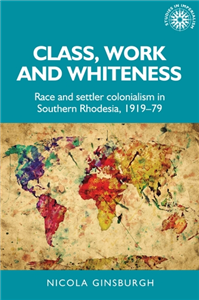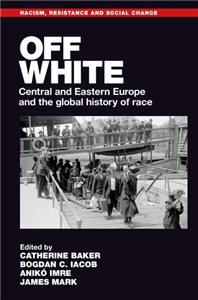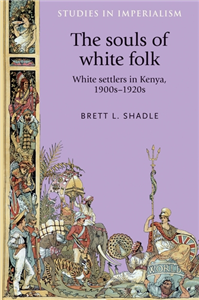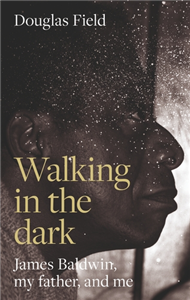Your Search Results
-
Promoted Content
-
Promoted ContentThe ArtsDecember 2012
Laughing matters
Understanding film, television and radio comedy
by Glyn White, John Mundy
Laughing Matters takes an analytic approach to film, television and radio comedy and provides an accessible overview of its forms and contexts. The introduction explains the value of studying comedy, concisely outlines the approach taken and summarises the relevant theories. The subsequent chapters are divided into two parts. The first part examines the specific forms comedy has taken as a constant and key element in film and broadcast comedy from their origins to the present. The second part shows how the genre gravitates towards contentious issues in British and American culture as it finds humour in the boundaries of class, gender, sexuality, race and logic. The authors cover silent cinema comedy including Chaplin, Lloyd and Keaton, sound film comedies including the Marx Brothers and Laurel and Hardy, Romantic film comedy, radio, television situation and sketch comedy, comedy and genre (including parody and spoof), animations from cartoons to CGI, issues of gender and sexuality from drag comedy to queer reading, issues of taste and humour from Carry On to contemporary 'gross-out' , and issues of race and ethnicity including a case study of African-American screen comedy. Numerous opportunities for following up are highlighted and advice on further reading, writing academically about comedy and an extensive bibliography add to the value of this textbook. ;
-
 Trusted Partner
Trusted Partner
-
 Trusted Partner
Humanities & Social SciencesDecember 2022
Trusted Partner
Humanities & Social SciencesDecember 2022Class, work and whiteness
Race and settler colonialism in Southern Rhodesia, 1919–79
by Nicola Ginsburgh
This book offers the first comprehensive history of white workers from the end of the First World War to Zimbabwean independence in 1980. It reveals how white worker identity was constituted, examines the white labouring class as an ethnically and nationally heterogeneous formation comprised of both men and women, and emphasises the active participation of white workers in the ongoing and contested production of race. White wage labourers' experiences, both as exploited workers and as part of the privileged white minority, offer insight into how race and class co-produced one another and how boundaries fundamental to settler colonialism were regulated and policed. Based on original research conducted in Zimbabwe, South Africa and the UK, this book offers a unique theoretical synthesis of work on gender, whiteness studies, labour histories, settler colonialism, Marxism, emotions and the New African Economic History.
-
 Trusted Partner
Humanities & Social SciencesMay 2024
Trusted Partner
Humanities & Social SciencesMay 2024Off white
Central and Eastern Europe and the global history of race
by Catherine Baker, Bogdan C. Iacob, Anikó Imre, James Mark
This volume foregrounds racial difference as a key to an alternative history of the Central and Eastern European region, which revolves around the role of whiteness as the unacknowledged foundation of semi-peripheral nation-states and national identities, and of the region's current status as a global stronghold of unapologetic white, Christian nationalisms. Contributions address the pivotal role of whiteness in international diplomacy, geographical exploration, media cultures, music, intellectual discourses, academic theories, everyday language and banal nationalism's many avenues of expressions. The book offers new paradigms for understanding the relationships among racial capitalism, populism, economic peripherality and race.
-
 Trusted Partner
Trusted Partner
-
 Trusted Partner
Literature & Literary StudiesJanuary 2024
Trusted Partner
Literature & Literary StudiesJanuary 2024White before whiteness in the late Middle Ages
by Wan-Chuan Kao
-
 Trusted Partner
February 1982
Trusted Partner
February 1982Die Orte der Marguerite Duras
by Marguerite Duras, Michelle Porte, Justus Franz Wittkop
Marguerite Duras wurde am 4. April 1914 in der ehemaligen französischen Kolonie Gia Dinh, dem heutigen Vietnam als Marguerite Donnadieu geboren und starb am 3. März 1996 in Paris. Sie besuchte das Lycée Français in Saigon und machte 1931 Abitur. Ein Jahr später siedelte die Familie nach Paris um, wo sie an der Rechtswissenschaftlichen Fakultät der Universität Paris und an der École des Sciences Politiques studierte. Von 1935 bis 1941 arbeitete sie als Sekretärin im Ministère des Colonies. 1939 heiratete sie Robert Antelme. Beide waren ab 1940 in der Résistance aktiv. Antelme wurde später ins Konzentrationslager Dachau deportiert. 1943 erschien ihr Debütroman Les Impudents (Die Schamlosen) unter dem Pseudonym Marguerite Duras, welchem keine besondere Aufmerksamkeit in der Öffentlichkeit zuteil kam. Mit Un Barrage contre le Pacifique (Heiße Küste), das 1950 erschien, hatte Duras größeren Erfolg. Sie schrieb nicht nur Romane, sondern verfasste auch Theaterstücke und trat als Filmregisseurin in Erscheinung.
-
 Trusted Partner
Humanities & Social SciencesSeptember 2020
Trusted Partner
Humanities & Social SciencesSeptember 2020A global history of white nationalism
by Daniel Geary, Camilla Schofield, Jennifer Sutton, John Solomos, Satnam Virdee, Aaron Winter
-
 Trusted Partner
March 2010
Trusted Partner
March 2010Der sichere Tod
Kriminalroman
by Adrian McKinty, Kirsten Riesselmann
Die Bronx. Harlem. Mehr als 2000 Morde pro Jahr. Nicht gerade das, was Michael Forsythe, illegal aus Belfast eingereist, sich von New York erhofft hat. Aber als Neuling in der street gang des mächtigen Darkey White macht Michael sich gut. Jung, clever, mit wenig Skrupeln, erwirbt er sich schnell Darkeys Vertrauen. Bis er sich mit dessen Freundin einläßt. Was jetzt gegen Michael in Gang gesetzt wird, ist teuflisch – und bedeutet seinen sicheren Tod. Doch Darkey hat Michael unterschätzt: seine Zähigkeit und seinen eisernen Willen, sich an allen zu rächen, die ihn verraten haben. Der Auftakt zur preisgekrönten Dead-Trilogie: ein irischer Bad Boy auf Rachefeldzug in den härtesten Vierteln New Yorks
-
 Trusted Partner
The ArtsJanuary 2019
Trusted Partner
The ArtsJanuary 2019From Perversion to Purity
The stardom of Catherine Deneuve
by Lisa Downing, Sue Harris
Catherine Deneuve is indisputably one of the world's most celebrated actresses, both in her native France and throughout the world. Her career has spanned five decades during which she has worked with the most significant of French auteurs, as well as forging partnerships with international directors such as Bunuel and Polanski. The Deneuve star persona has attained such iconic status that it can now symbolise the very essence of French womanhood and civic identity. In this wide-ranging and authoritative collection of essays by a selection of international film academics and writers, the Deneuve persona is scrutinised and illuminated. Beyond the glamorous iconographic status of Yves Saint Laurent's muse, and the epitome of sexual inviolability, Deneuve's status as actress is foregrounded. The book will be essential reading for students and lecturers in star studies.
-
 Trusted Partner
Humanities & Social SciencesSeptember 2020
Trusted Partner
Humanities & Social SciencesSeptember 2020Class, work and whiteness
by Nicola Ginsburgh, Alan Lester
-
 Trusted Partner
July 2018
Trusted Partner
July 2018White Maze
Du bist längst mittendrin
by Perry, June
*** Eure schöne neue Welt ist tödlich! *** Mit einem Schlag endet Vivians sorgenfreies Leben: Ihre Mutter Sofia wurde ermordet! Die erfolgreiche Game-Entwicklerin stand kurz vor dem Release eines bahnbrechenden Computerspiels. „White Maze“ wird mit neuartigen Lucent-Kontaktlinsen gespielt - dank ihnen erleben die Spieler virtuelle Game-Welten mit allen Sinnen. Aber warum zerstörte Vivians Mutter kurz vor ihrem Tod die Prototypen der Linsen? Zusammen mit dem schulbekannten Hacker Tom will Viv den Mord an Sofia aufklären. Dazu muss Viv selbst Lucent-Linsen einsetzen und tief in die virtuelle Welt eintauchen. Doch dort ist es für den Mörder ein Leichtes, die falsche Realität nach seinen Spielregeln zu manipulieren. Kann Vivian ihren eigenen Gefühlen vertrauen, wenn alles, was sie sieht, hört, riecht und schmeckt, bloße Lüge ist?
-
 Trusted Partner
Humanities & Social SciencesJanuary 2017
Trusted Partner
Humanities & Social SciencesJanuary 2017The souls of white folk
White settlers in Kenya, 1900s–1920s
by Brett Shadle, Andrew Thompson, John M. MacKenzie
Kenya's white settlers have been alternately celebrated and condemned, painted as romantic pioneers or hedonistic bed-hoppers or crude racists. The souls of white folk examines settlers not as caricatures, but as people inhabiting a unique historical moment. It takes seriously - though not uncritically - what settlers said, how they viewed themselves and their world. It argues that the settler soul was composed of a series of interlaced ideas: settlers equated civilisation with a (hard to define) whiteness; they were emotionally enriched through claims to paternalism and trusteeship over Africans; they felt themselves constantly threatened by Africans, by the state, and by the moral failures of other settlers; and they daily enacted their claims to supremacy through rituals of prestige, deference, humiliation and violence. The souls of white folk will appeal to those interested in the histories of Africa, colonialism, and race, and can be appreciated by scholars and students alike.
-
 Trusted Partner
Biography & True StoriesNovember 2024
Trusted Partner
Biography & True StoriesNovember 2024Walking in the dark
James Baldwin, my father and I
by Douglas Field
A moving exploration of the life and work of the celebrated American writer, blending biography and memoir with literary criticism. Since James Baldwin's death in 1987, his writing - including The Fire Next Time, one of the manifestoes of the Civil Rights Movement, and Giovanni's Room, a pioneering work of gay fiction - has only grown in relevance. Douglas Field was introduced to Baldwin's essays and novels by his father, who witnessed the writer's debate with William F. Buckley at Cambridge University in 1965. In Walking in the dark, he embarks on a journey to unravel his life-long fascination and to understand why Baldwin continues to enthral us decades after his death. Tracing Baldwin's footsteps in France, the US and Switzerland, and digging into archives, Field paints an intimate portrait of the writer's life and influence. At the same time, he offers a poignant account of coming to terms with his father's Alzheimer's disease. Interweaving Baldwin's writings on family, illness, memory and place, Walking in the dark is an eloquent testament to the enduring power of great literature to illuminate our paths.
-
 Trusted Partner
Humanities & Social SciencesJune 2014
Trusted Partner
Humanities & Social SciencesJune 2014Engendering whiteness
White women and colonialism in Barbados and North Carolina, 1627–1865
by Cecily Jones, Andrew Thompson, John Mackenzie
Engendering whiteness represents a comparative analysis of the complex interweaving of race, gender, social class and sexuality in defining the contours of white women's lives in Barbados and North Carolina during the era of slavery. Despite their gendered subordination, their social location within the dominant white group afforded all white women a range of privileges. Hence, their whiteness, as much as their gender, shaped these women's social identities and material realities. Engendering whiteness draws on a wide variety of sources including property deeds, wills and court transcripts, and interrogates the ways in which white women could be simultaneously socially positioned within plantation societies as both agents and as victims. It also reveals the strategies deployed by elite and poor white women in these societies to resist their gendered subordination, to challenge the ideological and social constraints that sought to restrict their lives to the private domestic sphere, to protect the limited rights afforded to them, to secure independent livelihoods and to create meaningful existences. ;
-
 Trusted Partner
The ArtsJanuary 2019
Trusted Partner
The ArtsJanuary 2019Marguerite Duras
by Renate Gunther
The first book in English to deal exclusively with Duras' cinema, including such films as India Song, Le Camion, and Nathalie Granger. Provides a lucid and stimulating introduction to her films, which is accessible to a wide readerhip, both specialist and non-specialist.. Locates the films in their autobiographical as well as social and historical context, making the book broadly interesting to students and teachers in all areas of French Studies.. The book's empahasis on gender issues widens it's appeal to include those working in Women's Studies, Gender Studies and Gay and Lesbian Studies.
-
 Trusted Partner
Humanities & Social SciencesMarch 2021
Trusted Partner
Humanities & Social SciencesMarch 2021Religion, regulation, consumption
by John Lever, Johan Fischer
-
 Trusted Partner
February 2023
Trusted Partner
February 2023White Fox (Band 4) - Die Pforte des Schicksals
Begleite Polarfuchs Dilah auf seiner spannenden Mission - Actionreiche Dein SPIEGEL-Bestsellerreihe ab 9 Jahren
by Jiatong Chen, Viola Wang, Leonie Weidel
Die letzte Hoffnung Mit einem mächtigen Zauber versucht die Rote Königin die Tiere der Arktis zu vernichten. Dilah, früher Polarfuchs, jetzt ein Mensch, glaubt jedoch fest daran, dass Menschen und Tiere in Einklang miteinander leben können. Um die Pläne der Königin zu vereiteln, muss er den geheimnisvollen Goldenen Palast finden. Doch dessen Pforte ist verborgen … Gelingt es Dilah, den drohenden Untergang der Tiere abzuwenden? Band 4 der berührenden und actionreichen Tierfantasy! Der vierte Band der großen Tierfantasy ab 9 Jahren , geschrieben von dem chinesischen Bestseller-Autor Jiatong Chen . Coolness und Magie treffen Spannung, Action und Natur! Ein packendes Abenteuer rund um Polartiere, eine große Mission und eine gefährliche Reise. In dieser modernen Parabel liegen Gut und Böse sowie Freunde und Feinde ganz nah beieinander. Mit stimmungsvollen Schwarz-Weiß-Illustrationen von Viola Wang . Für alle Fantasy-Fans, die von Woodwalkers und Animox lieben. Der Titel ist bei Antolin gelistet. Alle Bände dieser Reihe: Band 1: White Fox - Der Ruf des Mondsteins Band 2: White Fox - Suche nach der verborgenen Quelle Band 3: White Fox - Auf dem Pfad der Bestimmung Band 4: White Fox - Die Pforte des Schicksals Weitere Bände aus dem White-Fox-Universum: Band 1: White Fox Chroniken - Das Geheimnis des Silberbaums Band 2: White Fox Chroniken - Aufbruch zum Schwarzen See Entdecke die neue Reihe von Jiatong Chen über geheimnisvolle Traumwelten: Dream Keeper (Band 1) - Aufbruch ins Reich der Träume
-
 Trusted Partner
Trusted Partner


























